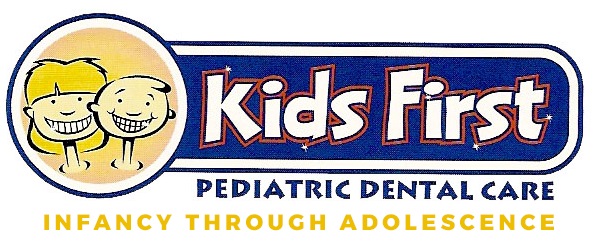Teething is a significant milestone in a baby’s development, marking the emergence of their first set of teeth. While it’s an exciting time for parents, it can be challenging for babies as they may experience discomfort and pain. This blog post aims to provide a comprehensive guide on how to soothe teething troubles in babies, offering practical tips and remedies to help make this stage as smooth as possible.
Understanding Teething
What is Teething?
Teething is the process by which a baby’s first teeth, known as primary teeth or milk teeth, emerge through the gums. This typically begins around six months of age but can start as early as three months or as late as twelve months. The entire teething process usually continues until the child is about two to three years old, by which time they will have their full set of 20 primary teeth.
Signs and Symptoms of Teething
Teething can be identified by several common signs and symptoms, including:
- Drooling: Excessive drooling is often one of the first signs of teething.
- Chewing and Biting: Babies may chew on their fingers, toys, or other objects to relieve the pressure on their gums.
- Irritability and Fussiness: The discomfort of teething can make babies irritable and fussy.
- Swollen Gums: The gums may appear red and swollen where the tooth is about to emerge.
- Changes in Feeding: Babies may refuse to eat or drink due to the pain in their gums.
- Sleep Disturbances: The discomfort can disrupt a baby’s sleep patterns, causing frequent waking.
How to Soothe Teething Troubles
Gentle Gum Massage
One of the simplest and most effective ways to soothe a teething baby is to gently massage their gums. This can be done using a clean finger or a moistened gauze pad. The pressure applied during the massage can help alleviate some of the pain and discomfort.
Teething Toys and Rings
Teething toys and rings are designed specifically to provide relief for teething babies. These toys are made from safe, non-toxic materials and can be chilled in the refrigerator for added soothing effect. The cold helps numb the gums, while the chewing action provides relief from the pressure.
Cold Washcloth
A clean, cold washcloth can be a great teething aid. Simply wet the washcloth, wring it out, and place it in the refrigerator until it is cold. Babies can chew on the washcloth, which provides a soothing sensation for their sore gums.
Over-the-Counter Remedies
For babies experiencing significant discomfort, over-the-counter remedies can be helpful. These include:
- Teething Gels: These gels can be applied directly to the gums to provide temporary relief. However, it is important to use them sparingly and follow the instructions provided by the manufacturer. Consult with your pediatric dentist if you have any questions.
- Pain Relievers: Pediatric pain relievers, such as infant acetaminophen or ibuprofen, can help reduce pain and inflammation. Always consult with a pediatrician or pediatric dentist before administering any medication.
Homemade Teething Biscuits
Homemade teething biscuits are a safe and natural way to help soothe a teething baby. These biscuits are typically made from simple ingredients like flour, water, and baby-safe spices. They provide a firm texture for babies to chew on, which can help alleviate gum pain.
Breastfeeding or Bottle Feeding
Breastfeeding or bottle feeding can provide comfort to a teething baby. The act of sucking can help soothe the gums and provide a sense of security. If breastfeeding, ensure the baby is latched properly to avoid additional discomfort.
Distraction Techniques
Sometimes, distracting a teething baby can be an effective way to manage their discomfort. Engaging in activities such as playing with toys, reading books, or going for a walk can help take their mind off the pain.
When to See a Doctor
While teething is a natural process, there are times when it is necessary to seek medical advice. If a baby experiences any of the following symptoms, it is important to consult a pediatrician:
- High Fever: A high fever (above 100.4°F or 38°C) is not typically associated with teething and may indicate an infection.
- Diarrhea: Persistent diarrhea can be a sign of an underlying issue.
- Rashes: While mild rashes around the mouth are common due to drooling, widespread rashes may require medical attention.
- Excessive Crying: If the baby is inconsolable and crying excessively, it is important to rule out other potential causes of discomfort.
Tips for Parents
Understanding and utilizing effective teething tips can greatly ease the discomfort for both babies and parents during this challenging phase. Here are a few tips:
Stay Calm and Patient
Teething can be a challenging time for both babies and parents. It is important to stay calm and patient, as babies can pick up on their parents’ stress and anxiety. Remember that this phase is temporary and will eventually pass.
Maintain a Consistent Routine
Maintaining a consistent routine can help provide a sense of security and stability for a teething baby. This includes regular feeding times, nap times, and bedtime routines. Consistency can help babies feel more comfortable and less irritable.
Keep the Baby Hydrated
Ensuring that the baby stays hydrated is essential, especially if they are drooling excessively. Offer breast milk, formula, or water regularly to keep them hydrated.
Monitor Oral Hygiene
Even though primary teeth are temporary, it is important to start good oral hygiene habits early. Gently clean the baby’s gums with a soft, damp cloth or a baby toothbrush designed for their age. Once the first teeth appear, brushing with a tiny amount of fluoride toothpaste can help maintain oral health.
Provide Comfort and Reassurance
Offering comfort and reassurance to a teething baby can make a significant difference. Holding, cuddling, and soothing the baby with a calm voice can help them feel more secure and less distressed.
Be Prepared for Sleep Disruptions
Teething can disrupt a baby’s sleep patterns, leading to frequent waking during the night. Be prepared for these disruptions and try to provide comfort and reassurance to help the baby settle back to sleep. Creating a soothing bedtime routine can also help promote better sleep.
Natural Remedies for Teething
Natural remedies can be highly effective in soothing a teething baby. Chamomile tea, known for its calming properties, can be offered in a bottle or soaked in a washcloth for the baby to chew on. Clove oil, when properly diluted with a carrier oil like coconut oil, can be gently rubbed on the gums to provide numbing relief. Amber teething necklaces, believed to release anti-inflammatory succinic acid when worn against the skin, are another popular choice, though they should be used under supervision to prevent choking hazards. Additionally, essential oils such as lavender and chamomile can be diffused in the baby’s room or massaged onto the skin to promote relaxation. Frozen fruits and vegetables, like slices of banana, cucumber, or carrot, offer a natural way to numb the gums and provide relief from teething discomfort.
Think your little one may be ready for an appointment? Give us a call today!
With the right approach and a little extra care, you can help your baby navigate teething with greater ease. Our team at Kids First Pediatric Dental Care is here to help! Call us today for an appointment!

